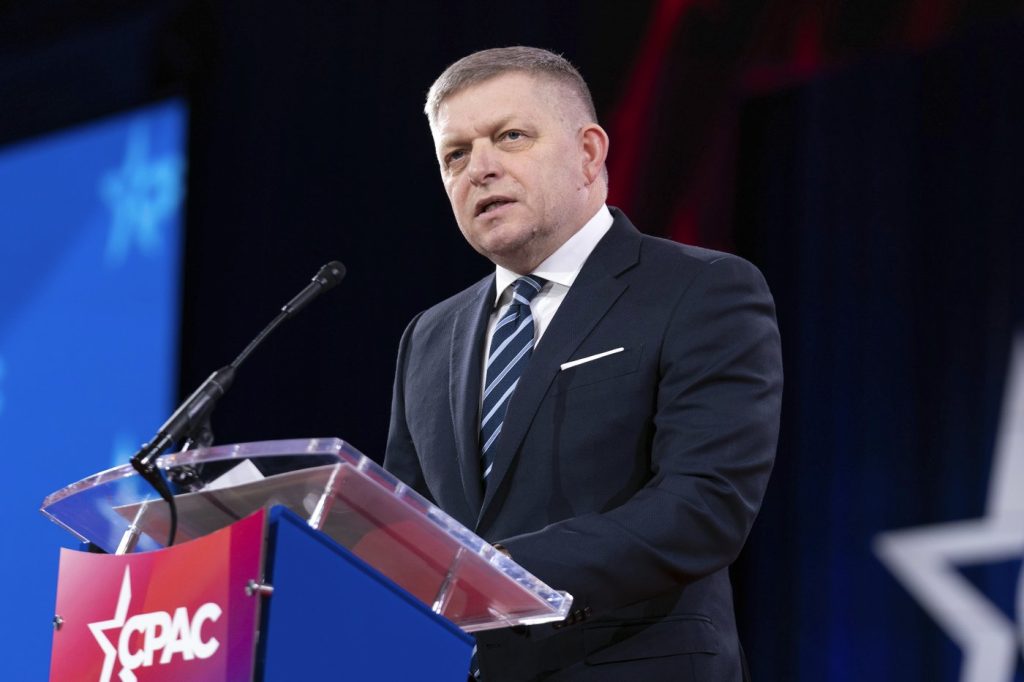BRATISLAVA, Slovakia (AP) - Slovakia's populist Prime Minister Robert Fico has criticized the European Union's proposal to stop imports of Russian natural gas by the end of 2027. This move aims to cut off revenue to President Vladimir Putin, which supports the ongoing war in Ukraine. Fico labeled the plan as "absolutely unacceptable" for Slovakia and signaled the Slovak government's readiness to veto it. The European Commission, the EU's executive body, is expected to present a comprehensive strategy next month to prohibit new gas contracts with Russia by year's end and to phase out existing agreements by 2027 across the 27-nation bloc.
Fico asserted that the EU's gas proposals would lead to an increase in gas prices, adversely affecting Slovakia and the entire EU. Currently, Slovakia holds a gas delivery contract with Russia, which is set to expire in 2034. If the EU's plan takes effect, Fico indicated that he would pursue compensation for damages incurred due to the loss of their gas agreement.
Furthermore, Fico has rejected an EU proposal to halt imports of oil and nuclear fuel from Russia, aligning with Hungary in opposition to such measures. Both nations' leaders are viewed as close allies of Putin in Europe, and they have previously blocked EU military assistance to Ukraine, indicating significant resistance to the European Commission's energy proposals.
Fico, who has a contentious political reputation domestically and internationally, returned to the prime ministership in 2003 after winning parliamentary elections with a pro-Russia and anti-American agenda through his leftist Smer (Direction) party. His longstanding pro-Russia sentiments have led to direct challenges against EU policies concerning Ukraine.
The Slovak Prime Minister is set to make headlines as he will become the only European Union leader to attend festivities in Moscow commemorating the 80th anniversary of the defeat of Nazi Germany in World War II on Friday. This visit marks his second trip to Moscow since December, reinforcing his government's ties with Russia amid a backdrop of local protests against its pro-Russian policies.
The Slovak government is currently facing significant opposition from segments of its populace, who are vocal in their discontent regarding its ties with Russia and other domestic policies. These protests highlight a growing divide within Slovakia concerning its foreign relations and energy dependency, as Fico's government navigates the complex landscape of EU regulations and national interests.











